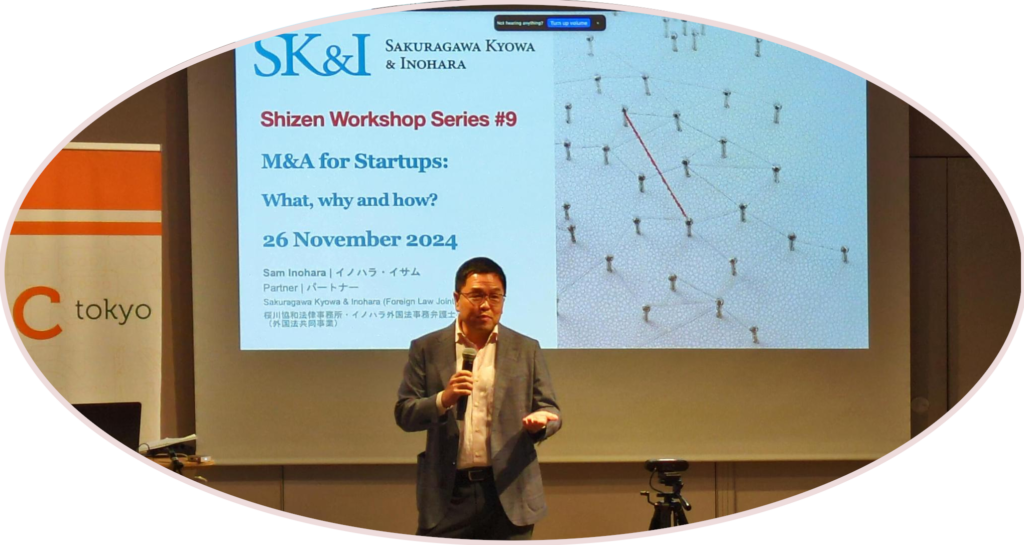
Today’s Shizen Capital founder workshop covered an important topic: Startup M&A.
Sam Inohara, Registered Foreign Lawyer, State Bar of California, led an introductory session on the basics of mergers and acquisitions for startups, the contrast between IPO and M&A exits, and how Japan’s founders should consider M&A not only as a superior exit avenue but also as a lever for growth.
Readers of my blog know that I am on a mission to change the historically negative mindset around M&A among Japan’s startup community.
A healthy M&A environment is an essential ingredient to a vibrant venture ecosystem. Take France, for instance, where over 70% of the country’s 44 tech unicorns have made multiple acquisitions of other startups along their journey to becoming unicorns. Bringing other startups into the fold can help a startup broaden its business model, enlarge its product line, reinforce its management team, access new markets, recruit more innovative minds, and often a combination of the above.
The innovation flywheel
Fostering an environment for startup M&A accelerates the velocity of innovation. Here’s a caricature of how I’ve witnessed this play out elsewhere:
A founder observes a market problem and builds a company to solve it. The founder’s drive stems from an obsession to build and innovate (not for example, to attain an IPO, which is but a mere arbitrary milestone of success dictated by ‘the system’). This ‘founder growth mindset’ often manifests itself into the founder pursuing company expansion through both organic and external (i.e. M&A) means.
This also means that when an opportunity presents itself to ratchet up growth by joining forces with a larger actor (i.e. merge or be acquired), the founder welcomes the opportunity in a positive light. Maybe the marriage happens, maybe not, but the opportunity is seriously considered. In the event that the two companies do walk down the aisle together, the aforementioned founder probably receives a decent windfall from the transaction, accompanied by some form of retention bonus for a period of time post-transaction.
Subsequently, a typical pattern is that a couple years later the founder is struck by the entrepreneurial itch again. They resign from their comfortable new job, perhaps take some time off to go meditate in Bali, and then return to the startup fray with their next idea and an ambition to build something even bigger. This is how the flywheel effect kicks in. Serial entrepreneurs conceiving, creating, building, buying, and ultimately selling. Rinse and repeat.
Thank you to Maître Inohara for leading today’s workshop, to Mai Iida for operating our Shizen Capital workshop series, and to our colleagues Mayumi Maruyoshi and Mayumi Wakebe for always jumping in to lend a welcome hand !
